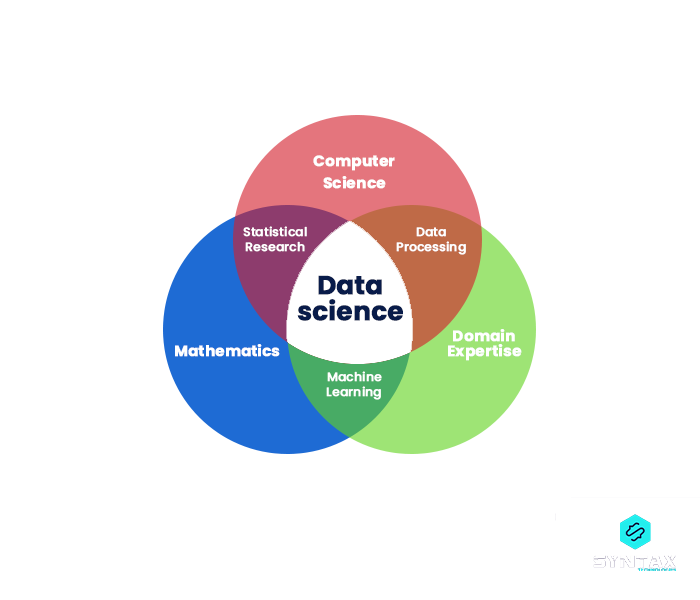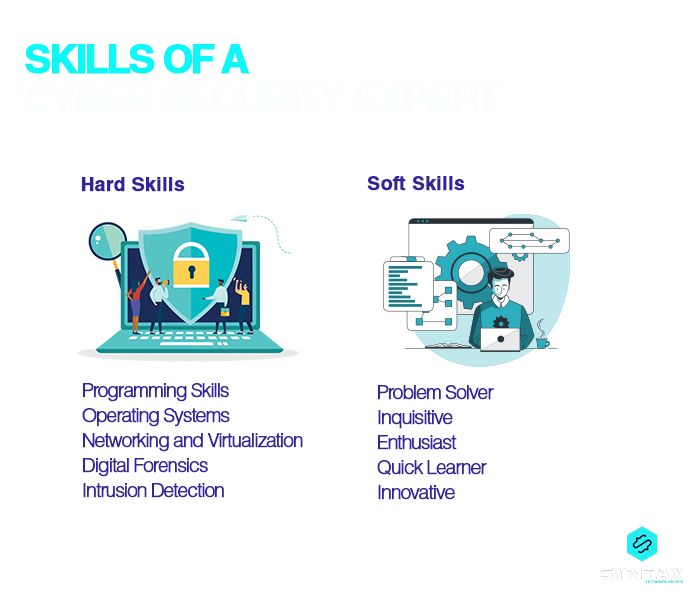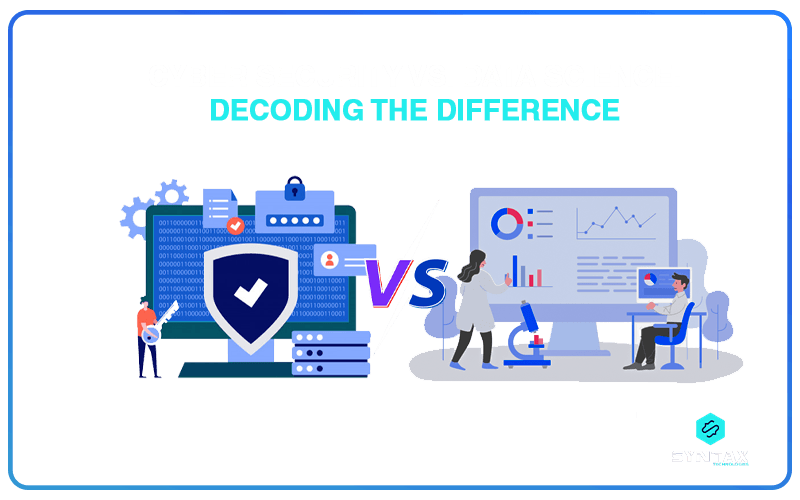If you make Customers Unhappy in the Physical World, they might each tell 6 Friends. If you make Customers Unhappy on the Internet, they can each tell 6,000 Friends.– Jeff Bezos
The above quote is significant, not only in terms of highlighting the power of the Internet, but also because it lays emphasis on the idea of customer satisfaction and customer happiness. It is evident that business organizations cannot afford to ignore the needs and opinions of the customers.
In this respect, the disciplines of Cyber Security as well as Data Science have come to play a major role. They seek to promote customer happiness in different ways. The former protects the cyber realm, facilitating customer satisfaction; while the latter, provides for better understanding of one’s consumers. And yet the issue of Cyber Security vs. Data Science is a logical one.
This is especially true for young professionals who try to make sense of the issue of Data Science vs. Cyber Security from the point of deciding upon the right professional domain for themselves.
In this blog, we shall look at the issue of Cyber Security vs. Data Science, in terms of the major features and aspects of both the disciplines. Subsequently, we shall look at the issue of Data Science vs. Cyber Security in terms of the difference in career prospects within the two domains, as well as divergence in the kind of job role and responsibilities which the two fields entail.
To conclude, we shall look at the topic of Data Science vs. Cyber Security Salary, by trying to understand the compensation package of professionals within the two domains.
The field of Data Science is quite closely related to and is often confused with another disciplinary field and that is Data Analytics. If you wish to get into the details of the difference between the two domains, do read our blog on Data Science vs. Data Analytics: A Breakdown.
What is Cyber Security?
Cyber Security is a discipline which deals with providing protection and security to servers, computers, mobiles, programs, systems and networks; with the objective of defending them against malicious digital attacks (Cyber Security threats and Cyber Security attacks).
These attacks are essentially aimed at transforming, destroying or acquiring access to sensitive data; demanding ransom from the owners of data, or seeking to disrupt the normal procedure of business.
What is Data Science?
Data Science is a discipline which deals with structured as well as unstructured data. In simple words, it is the science of data which uses technology, statistics and algorithms for the purpose of Data Analysis, Data Mining, Predictive Modelling, Machine Learning Algorithm and so on. It can be seen as a combination of more than one discipline: Computer Science, Mathematics, Information Science, Statistics, Artificial Intelligence and Machine Learning.

Cyber Security vs. Data Science: A Comparison of Skills
In this section, we shall look at the issue of Data Science vs. Cyber Security on the basis of the kind of expertise required in each of the two fields. It is important to remember that the most important distinction between the two disciplines of Cyber Security and Data Science, is essentially in terms of the difference in the objective of the two domains.
While Data Science seeks to derive actionable insights from Big Data in order to facilitate data-driven decision making; Cyber Security happens to be concerned with safeguarding network and data infrastructure from unwarranted access.
Given the divergence in the purpose of the two fields; the requirement of skill set for professionals within the two domains is bound to be different. Let us have a look at the same.
Skills of a Data Scientist:
Data Science professionals are required to be experts in statistics and Mathematics, with skills in programming languages such as SQL, R and Python; Machine Learning and Predictive Modelling. Thus, the competencies of a Data Scientist shall include:
- Expertise in programming languages such as Python, Scala, R, Julia, MATLAB, Java and SQL
- Knowledge of Big Data platforms like Hadoop, Apache Spark and so on
- Experienced in Statistics and Probability, Linear Algebra and Multivariate Calculus
- Expertise in Machine Learning, Database management and Data wrangling
Skills of a Cyber Security Expert:
We shall be looking at some of the most important technical skills which you should keep in mind, as you think of how to get into Cyber Security.
- An understanding of some of the basic Programming Languages such as Java, Python, .NET and PHP, can be immensely useful in your career within the field.
- Knowledge of the fundamental elements of an Operating System can be crucial in understanding the potential weaknesses of the system.
- Competence in networking and virtualization. Virtualization refers to the creation of virtual software within a device – separate from the original software of the device – which can help in running tests without needing additional hardware.
- Familiarity with Intrusion Detection System (IDS). IDS is a software solution which can help in monitoring systems for any kind of malicious activities.
- Knowledge of Digital forensics. This would involve developing skills which could help in analyzing a security breach or a cyber attack and consequently identify the probable culprit.

If you wish to read more on how to make your way into the Cyber Security domain, do read our blog on How to get into Cyber Security?: Find your Answers.
Difference between Cyber Security and Data Science: A Look at the Job Description
In this section, we shall seek to decode the issue of Cyber Security vs. Data Science, in terms of the differing roles and responsibilities which Data Scientists and Cyber Security experts are expected to undertake in their professional capacity. Accordingly, the difference between Data Science and Cyber Security can be elucidated as follows:
Roles and Responsibilities of a Data Scientist:
- Data mining (building ETL pipelines or using APIs)
- Performing statistical analysis using different machine learning algorithms like Random Forest, logistic regression, Decision Trees and so on
- They might spend considerable amount of their time scrubbing data
- Involved in the development of Big Data infrastructures using Spark, tools such as Pig and Hive and Hadoop
- Data cleansing with the help of programming languages like R and Python
- Involved in creation of automation techniques and programs which could help in simplifying the routine activities

Roles and Responsibilities of a Cyber Security Expert:
- Developing strategies for safeguarding network and computer systems
- Developing Cyber Security policies, auditing them, monitoring network infrastructure as well as regulating and executing security measures
- Implementing firewalls and securing the IT infrastructure
- Deflecting potential Cyber Threats and attempted breaches
- Determining access authorizations
- Providing training to the employees on security policies
Do remember that the above mentioned roles and responsibilities of a Cyber Security expert, is essentially the generalized professional duties. Some of the responsibilities are more specific depending upon the job designation. If you wish to read more on the position of a Cyber Security Analyst or a Cyber Security Engineer; do read our blogs on How to become a Cyber Security Analyst without a degree? How to become a Cyber Security Engineer?: Know with Us.
Cyber Security Salary vs. Data Science Salary: Understanding the Career Prospects
As per the report by Robert Half Technology (RHT)’s 2020 Salary Guide, the earning potential of a Data Scientist is generally held to be in the estimated range of $105,750 and $180,250. They have an extremely positive career path with numerous opportunities for improving their skills and advancing to senior roles such as that of a Data Engineer or a Data Architect.
In terms of career prospects, some of the prominent job designations that an individual can aim for within the Data Science field, include:
- Data Scientist
- Statistician
- Machine Learning Engineer
- Data Analyst
- Data Engineer
- Data Consultant
- Data Architect
In terms of career prospects, some of the prominent job designations that an individual can aim for within the Cyber Security field, include:
- Chief Information Security Officer (CISO)
- Cyber Security Sales Engineer
- Cyber Security Architect
- Cyber Security Manager/Administrator
- Lead Software Security Engineer
- Penetration Tester
- Information Security Analyst
- Bug Bounty Specialist
- Cyber Security Lawyer
- Computer Forensics Analyst
- Incident Responder
- Cryptographer
The average salary of professionals within the Cyber Security field is estimated to be around $77,000 per year in the United States. The salary range for entry level, to some of the most senior level positions ranges from $37,000 to $160,000. A Cyber Security Engineer happens to be one of the highest paid positions within the domain wherein the annual paid salary is reported to be in the range of $180,000-$220,000; while a Cyber Security Architect might expect an average of $140,820.
On the issue of Cyber Security vs. Data Science Salary, it is important to keep certain points in mind. As per an observation made by the U.S. Bureau of Labor Statistics, the median salary for Data Scientists happens to be around $22,000 p.a. higher than the median salary for Cyber Security Analysts.
One of the prime reasons for the salary of Data Scientists to be slightly at the higher end, pertains to the fact that they happen to posses extremely specialized skills which make many of them indispensable for organizations that they cater to.
Having said that, it is important to remember that on the issue of Data Science vs. Cyber Security Salary; the factors of professional experience and education have a major role to play and the earning potential for individuals from both the fields will be largely dependent on that.
Data Science vs. Cyber Security: Evaluating the Right Fit for You
The importance of the two fields of Data Science and Cyber Security, is all set to soar higher and higher in the years to come. The coming decades will be fuelled by advanced technologies for data teletransmission and information processing.
The rising significance of Information Technology will be marked by Cloud Computing, Internet of Things, Big Data database technologies, Artificial Intelligence, Machine Learning, advanced Data Mining and so on. All of these form the crux of Data Science and as a field, it is expected to grow twice as fast as average over the next decade.
A simultaneous development to this digital revolution, has been the rising scale of Cyber Attacks using different social engineering techniques. Data Theft, Data Breach, Data Leakage, Ransomware attacks, Phishing attacks, Clickjacking attacks and so on; have only become rampant.
Moreover, given the kind of harm that these threats pose to the security of individuals and viability of business organizations; the need for a robust Cyber Security mechanism has only become a necessity. The field of Cyber Security is expected to grow four times the average rate, over the next decade.
It is evident that a career in Data Science as well as Cyber Security can be an extremely lucrative choice for any young ambitious individual. Given the intense competition between the two fields as a career option, the issue of Cyber Security vs. Data Science, is bound to rise. However, it is important to remember that one’s choice should largely be dictated by one’s career goals and academic interests.
Now let us look at certain common points which you should keep in mind as you consider either of the two fields.
- In terms of remuneration package, a Data Science job tends to pay more than a Cyber Security one, which is more abundant and requires less education.
- If education investment is taken into consideration, a career in Cyber Security can prove to be a wiser choice for students who wish to enter the labor market as soon as possible. He can embark upon the path of becoming a Cyber Security Analyst, right after completing his bachelor’s degree.
- Good degree programs for Data Science students can include mathematics, computer science and statistics, at the undergraduate level. It is advisable to participate in and contribute towards research projects.
- Most of the professional positions within the Data Science industry entail the requirement of a master’s degree (preferably, with some specialization) or professional certification for recruitment.
- As far as Cyber Security is concerned, you can think of a bachelor’s degree in Cyber Security in certain colleges, or a general computer science degree with courses on Information System, Information Assurance and so on.
- As a Cyber Security expert, you will be required to write computer programs. Hence, expertise as a programmer is a must.
- An MBA degree can be a good choice for Cyber Security professionals as it offers a chance to specialize in a computer related subject, and at the same time builds up competence in management and business. Similarly, one can also go for professional certification for a specialized department within the Cyber Security domain.
- In both the fields, a sense of data intuition, with the ability to communicate with data, can be an advantageous expertise.
So, which field is the right career option for you?
The answer is definitely not simple and much will depend on your objective judgement of facts as well as subjective judgement of your personal position. In the sections above, we have sought to highlight the skills required and career outlook within the two domains, the career prospects of the two fields as well as the things you should keep in mind as you evaluate your chance within the respective areas.
Having said that; you should keep in mind that the issue of Data Science vs. Cyber Security does not imply the superiority of one field over the other. The choice to pursue a career in either of them can be a highly wise decision.
Think whether your professional interest aligns with statistics/analytics and you happen to happen to carry an intrinsic desire to solve business problems using Machine Learning or Data Insight.
On the contrary, are you interested in evaluating, defending and mitigating security risks in order to protect business processes and data? If you happen to be inclined towards the former question, you should perhaps think of Data Science as a career option; while if you happen to be inclined towards the latter query, you should think of pursuing a career in Cyber Security.
Conclusion
By the end of this blog, you must have been convinced of the unending career possibilities which lie within both the fields of Data Science as well as Cyber Security. The issue of Cyber Security vs. Data Science is not the question of which domain is better. Rather it is an investigation into which field is better suited for you as an individual, keeping in mind your interests, skills, educational background as well as future aspirations.
Earning professional certifications through enrollment in a reputed Cyber Security course can be a plausible start.
We, at Syntax Technologies, provide you with the attractive opportunity of entering one of the most coveted domains within the tech world, through developing expertise in consonance with that of a Cyber Security expert. Enroll now for our Cyber Security course.




